Nora’s Guide to the Galaxy: Making Space Make Sense
Astrophysicist-turned-content-creator Nora is bringing the universe down to Earth—one brilliantly chaotic, wildly educational video at a time.
Nora from Nora’s Guide to the Galaxy is a science communicator, astrophysicist, and internet personality whose work blends scientific rigor with a refreshing dose of humor, honesty, and accessibility. With a background in physics and a deep love for the cosmos, Nora has carved a space (pun fully intended) in the digital universe where curiosity thrives and complicated astrophysical concepts are broken down without condescension. Whether she’s myth-busting misconceptions about dark matter or explaining orbital mechanics in under a minute, her content bridges the gap between “just curious” and “totally hooked.”
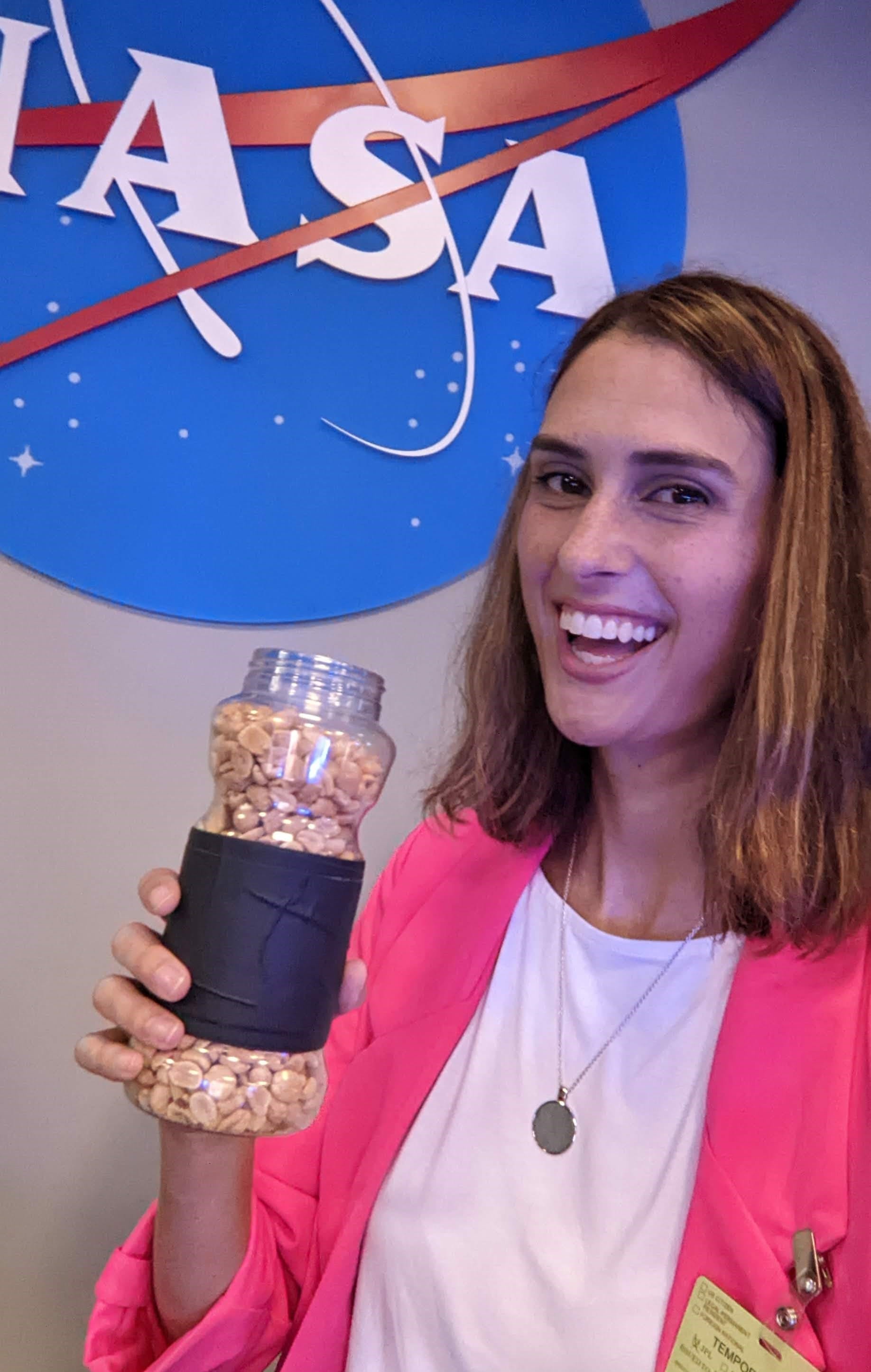
What makes Nora’s work stand out isn’t just the accuracy—it’s the way she shares science like a friend who’s too excited not to tell you about black holes. Born from a pandemic-era TikTok experiment and fueled by years of passion for storytelling and learning, Nora’s Guide to the Galaxy is equal parts educational and entertaining. She’s also fiercely transparent about the behind-the-scenes challenges of creating online content, navigating platforms, and staying motivated in a field that doesn’t always give immediate feedback.
In this interview, Nora talks about what pulled her back into astrophysics after years away, why making daily space fact videos for a year was as exhausting as it sounds, and what she’d tell her younger self (spoiler: it involves Bitcoin). Plus, she shares a mind-blowing fact just for our 3rd-grade readers—and where she’d go if she had the keys to any sci-fi universe.
Q&A with Nora
What inspired you to pursue a career in science communication and space education?
There’s no single thing that inspired me. When I was a kid, I thought space was pretty neat, and then in college, when I realized I could major in physics with an astronomy focus, I thought, “Why not?” I actually didn’t use my astronomy degree at all until I was 30 and decided to go to grad school and get a PhD because I missed learning about the universe. I’ve always enjoyed making “content” on the internet (shoutout to my Angelfire Legolas fan page), so it was a natural decision to combine my astrophysics expertise with my need to overshare online.
I didn’t get serious about my science communication work until the COVID-19 pandemic. Like many other millennials, I did something I swore I’d never do and downloaded TikTok. I was having so much fun making videos—and the discoverability on TikTok was so great at the time—that I thought, “Hey, I bet doing scicomm on here would actually reach people!” I spent a while planning it out, and then Nora’s Guide to the Galaxy was born.
Alternatively, it was out of spite toward Ford Prefect—because how dare he get drunk and make fun of human astrophysicists at parties!
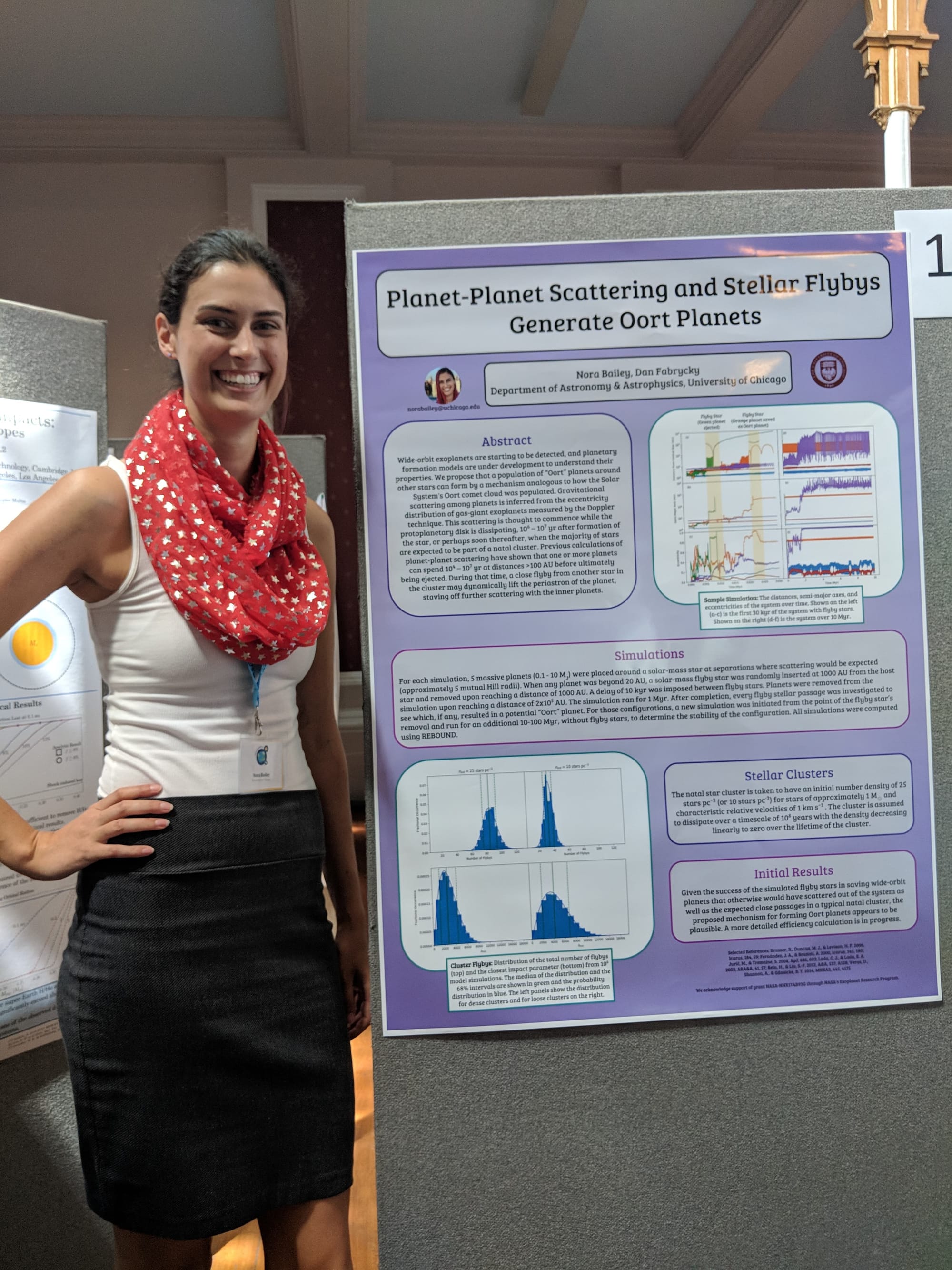
Your content does an amazing job of making complex space topics accessible. What’s your approach to breaking things down for a general audience?
Thank you—that’s one of the best compliments a scicommer can get! I don’t really have a specific approach. I guess I’m just flying by the seat of my pants! For shorter videos, I mostly just pick up my phone and go—well, after I do some research to make sure I’m correct, because I take my responsibility to be accurate very seriously. For longer videos, I write a script. I decide on a topic I want to talk about, then I think, “Okay, what do people need to know to understand why this is cool?” and build it out from there. I’ve been a writer my whole life, so I think that’s helped me develop those muscles. Outlining a YouTube video is a lot easier than outlining a novel!
Were there any challenges you faced as an underrepresented voice in STEM, and how did you overcome them?
To be honest, not really. I grew up with three older brothers, went to a military academy for college, and studied physics—being one of the only women around has just kind of been normal for me. In general, I’ve felt very supported, and I’m very grateful for that. Everyone deserves to have that kind of experience.
What’s one misconception about space or astronomy that you wish more people understood?
I wish people better understood what it means for us to “know” things about the universe. There are definitely so many things we don’t understand yet, but that isn’t the same thing as being completely ignorant. Not knowing what dark matter is doesn’t mean that dark matter could be anything. Even if we eventually find out that dark matter isn’t the right explanation for the myriad of associated observational effects, that doesn’t mean we haven’t learned a lot about astronomy in the process.
All models are wrong, as they say—but some are useful. Kepler and Newton were both “wrong” about planetary motion and gravity, but their work is still being used today. Someday we’ll probably understand how Einstein was “wrong” about gravity as well, but relativity still helps our GPS operate correctly.
Have you had a defining “aha!” moment in your career—something that solidified your passion for what you do?
In scicomm work, you often don’t get very much feedback and are at the whims of different social media platforms. It can be very discouraging, so the first time someone reached out to me because they had seen my videos and wanted to work with me was really validating.
I have a little note called “When I Need Motivation” where I keep clippings of comments I’ve gotten over the years that have made me feel like what I’m doing actually matters. Even knowing I made a difference for one person is important.
What advice would you give to young people—especially those from underrepresented backgrounds—who want to get involved in STEM?
Don’t give up too early! I’ve heard a lot of people say they were interested in STEM but thought they couldn’t pursue it because they did poorly in a math or science class. Math can be learned! Another teacher, a different style, or even just a bit of time might be all you need. And not every science is going to click with you. I’ve never been great at chemistry, but that doesn’t mean I can’t study physics!
In fact, I wasn’t even always in love with physics. I took AP Physics in high school and hated it—then a year later, I decided to major in physics anyway. Never let anyone—even yourself—tell you that you can’t do it.
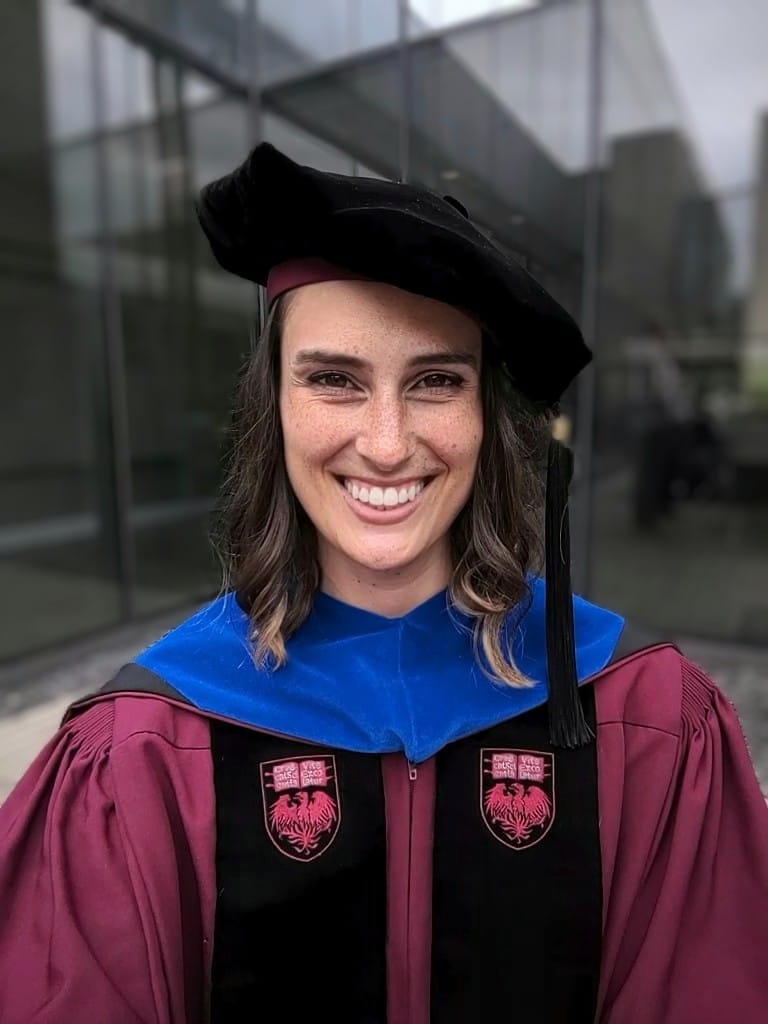
What’s one project, video, or moment in your journey that you’re particularly proud of?
I worked with Khan Academy on some middle school and high school science videos that I was really pleased with. Khan Academy does such great educational work, and it was exciting to be a part of that. I got a few great comments on those videos that went into my “When I Need Motivation” note!
For work on my own channels, I’m so proud of myself for finishing my “Year of Space Facts.” From May 2022 to May 2023, I posted a video with a new space fact every single day for a year without missing one. A year that included getting married, starting a new job, having COVID, and more. It was really, really difficult, and I regretted the decision many times—but sheer stubbornness got me through it!
Looking ahead, what excites you most about the future of space exploration and science communication?
I think the commercial space industry—though not without its flaws—will continue to make space exploration easier and cheaper, which is really exciting. I love seeing new countries launching missions and getting involved.
In scicomm, I have no idea what the future holds, and I guess that’s exciting in a way—but also a little stressful. To reach people, you have to be where the people are, so I imagine there will be a lot of new platforms to learn. For me personally, no concrete plans as of yet—but I did mention before that I am a writer…
My 3rd-grade students love learning about space! What’s one mind-blowing fact that you think they’d love?
I love space facts that highlight the absolute vastness of space. One that really does it for me is knowing that when you go outside and look up at the night sky—even with the darkest skies where you can see so many stars—you’re only seeing about 5,000 stars at most. For every star you are seeing, the galaxy contains at least another 20 million stars!
If you could travel anywhere in the universe—real or fictional—where would you go and why?
Maybe this is cheating a bit because it’s not a specific place, but I would go to the Culture. Travel the universe, have anything you need, and a Mind to answer all your questions!
If you could go back in time and tell your younger self one thing, what would it be?
“Yes, Bitcoin sounds stupid. It is stupid. But buy as much as you can when it costs ten cents, and then sell the first time it hits $1,000 and enjoy the rest of your life.”
But if speculative investment tips aren’t allowed, I would just tell her to keep going and that she’ll get through it every time. No spoilers!
Final Thoughts
Nora’s journey reminds us that there’s no single path into STEM—and sometimes, the most meaningful impact comes from blending expertise with authenticity. Through her engaging videos, thoughtful storytelling, and sheer persistence (366 space facts in 366 days [it was a leap year]!), she’s made the universe feel a little more within reach for all of us. Her work is a powerful example of how science communication doesn’t have to be dry or distant—it can be personal, playful, and profoundly inspiring.
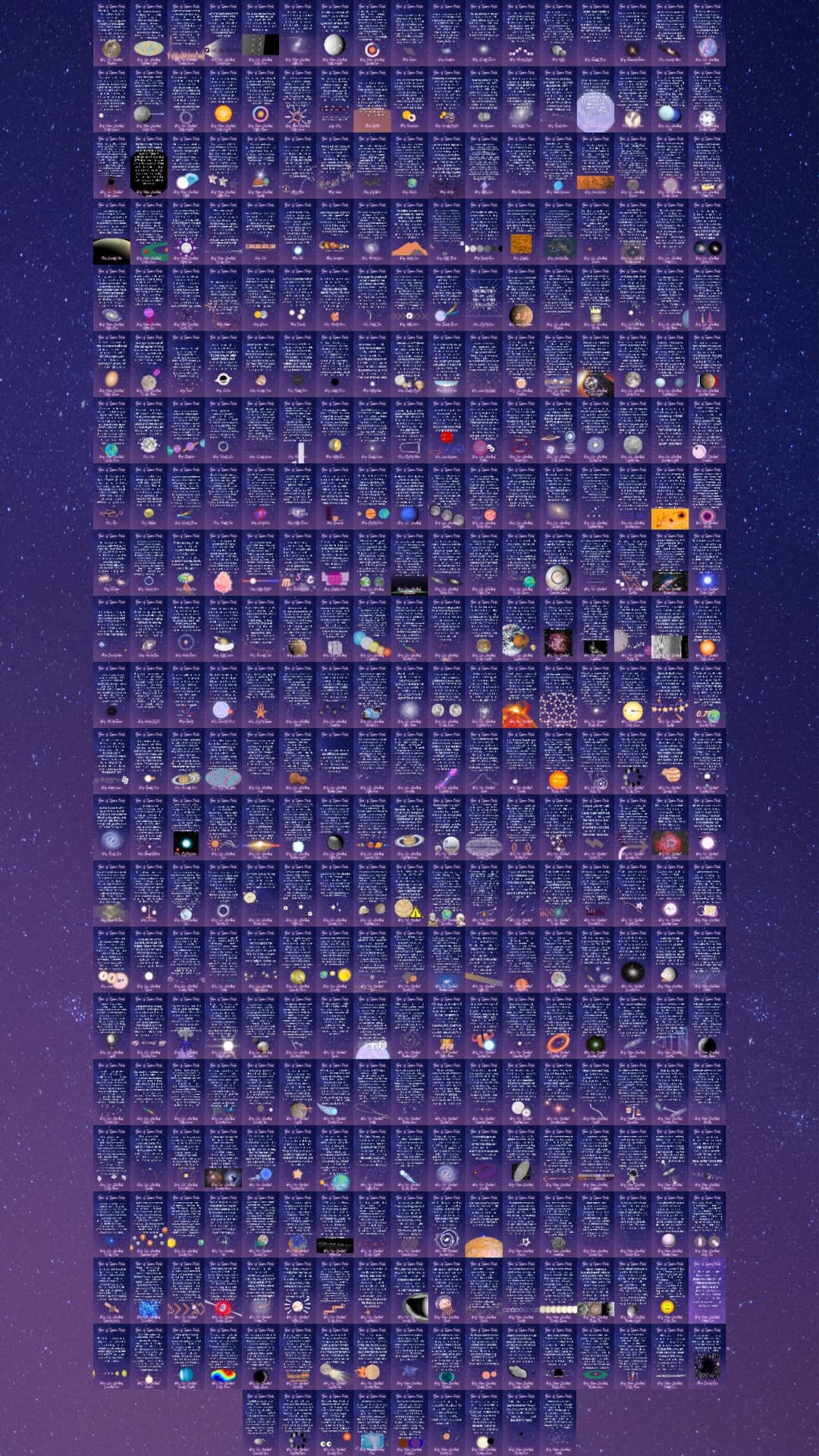
If Nora’s story resonated with you, consider supporting her by watching her videos, sharing her content, or following along as she continues to demystify the cosmos and uplift new voices in science.
You’ll find links to her channels and social media below—every like, comment, and share helps fuel the mission to make space for everyone in STEM.
Written by Andrew Hall @ SheDidtheMath.org

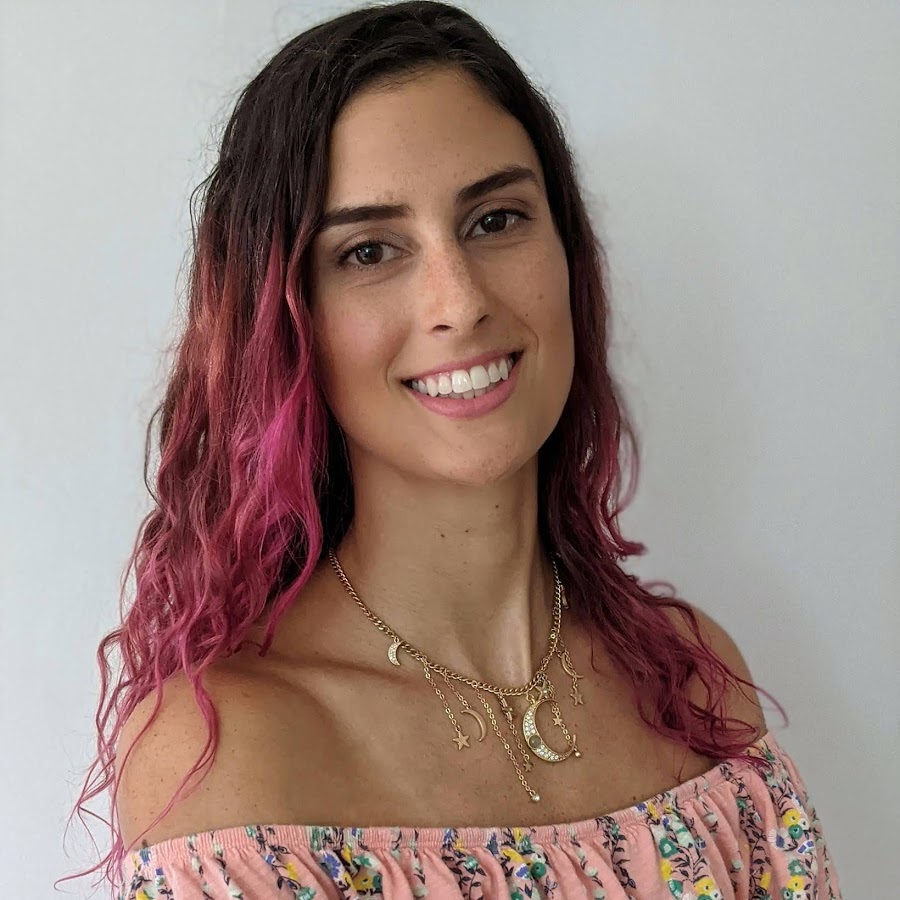
@norasguidetothegalaxy



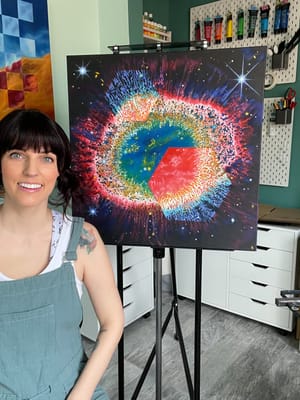
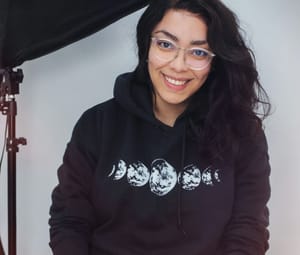
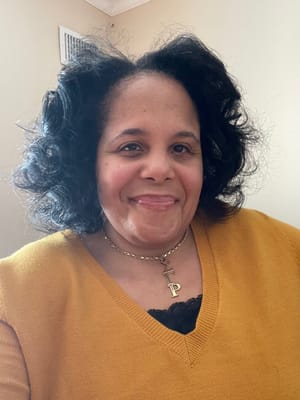
Comments